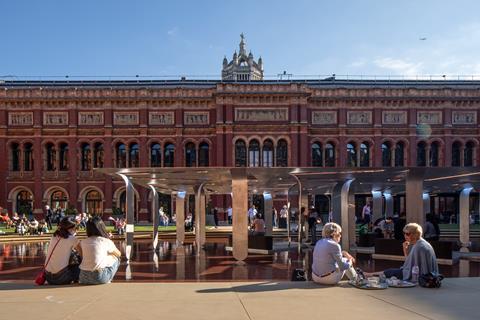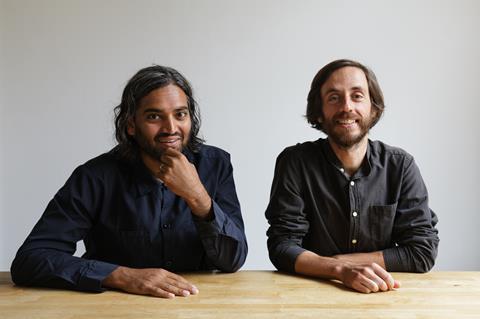Sustainability is more than a selling point. It is now an expectation, say Madhav Kidao and Brando Posocco, co-founders of Nebbia Works

As part of a new generation of small architecture practices, sustainable design is already inherent in how we work. It is something that we are conscious of throughout our lives and something that our clients already assume of us.

Sustainability is not a selling point but an expectation. Yet within the design community we find the conversation is still centred around either domestic scale behavioural change or the pursuit of speculative and “revolutionary” design products.
If we want to be serious about climate change, we need to address it on a global level with industrial scale action. We need to acknowledge that changes in construction we promote here have to also work in the developing world.
That means re-evaluating materials that are already widely used and challenging producers to appraise their practices and methodologies through our collective power as corporate consumers and specifiers.
We sometimes feel so far removed from the workings of global supply chains that it leads us to underestimate our influence. However collectively we have the power to make change through demand of material producers and suppliers; of fabricators and contractors; of manufacturers and brands.
Our project Between Forests and Skies, commissioned and exhibited by the Victoria & Albert Museum and to be exhibited at COP26, is made entirely of ultra-low carbon, fully recyclable aluminium. The product, produced by EN+, is identical to any other on the market however its primary production is 85% less carbon intensive than the global average.
This has been achieved by using purely hydroelectric power and the use of innovative ceramic alloy anodes within the electrolysis of alumina. This technological innovation has been driven by consumer demand and, once rolled out, looks to revolutionise one of the most carbon emitting industries.
Due to aluminium’s ubiquity within construction and beyond, the resultant global impact is monumental. It is this scale of corporate action we believe needs to be encouraged and demanded industry wide.
Madhav Kidao and Brando Posocco are co-founders at Nebbia Works
Ideas for positive change

This is part of our Countdown to Cop26 coverage in the lead up to the world climate conference in Glasgow in Novermber. We will be publishing more big ideas about ways to tackle the climate emergency over the coming weeks and you can find more here


























No comments yet